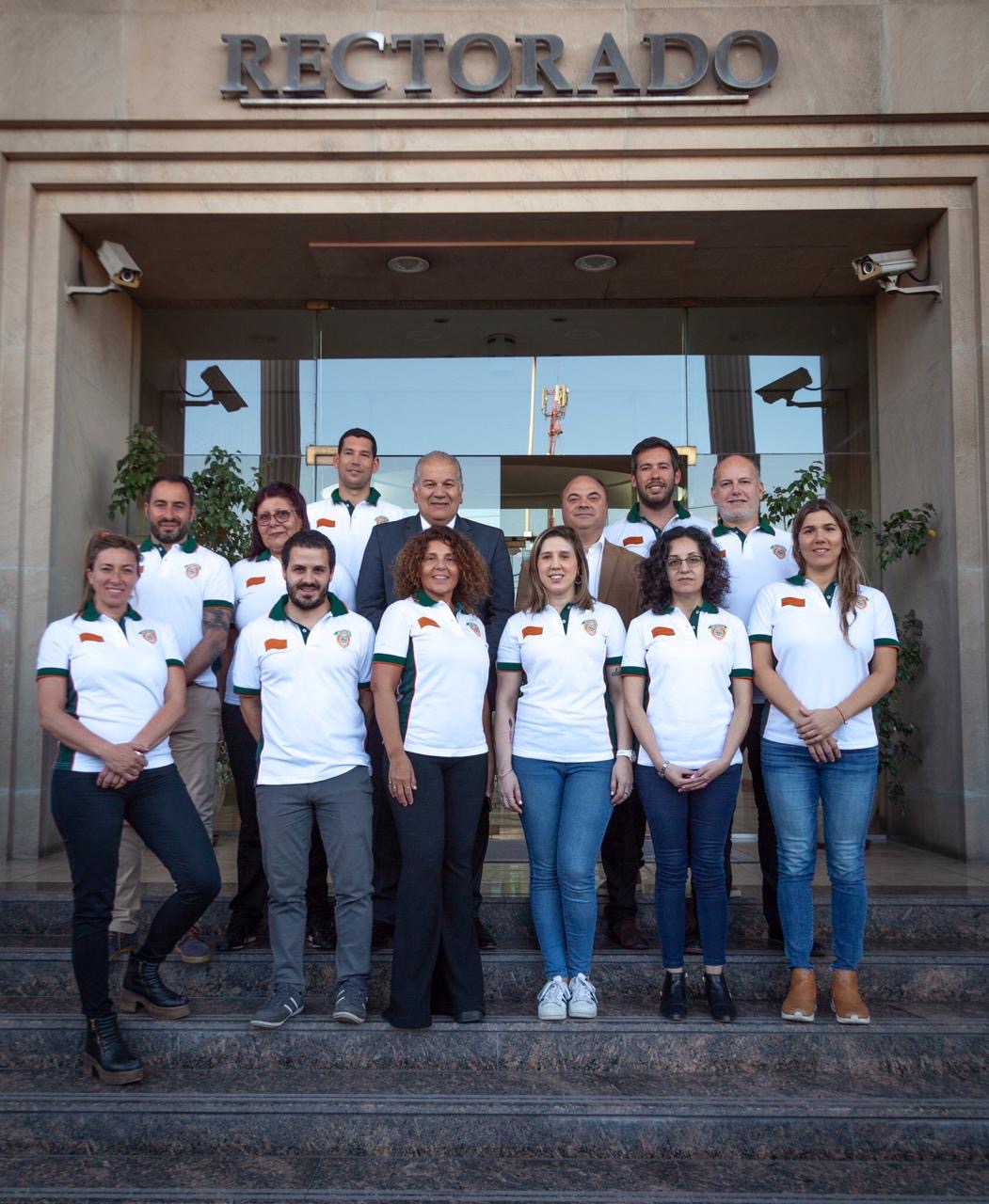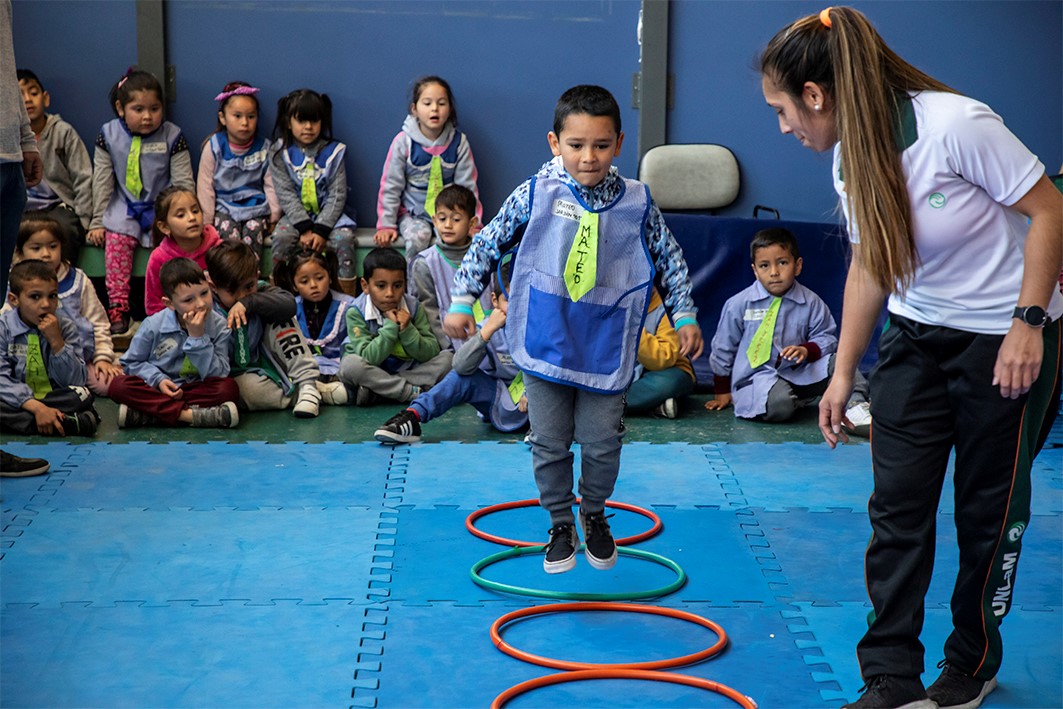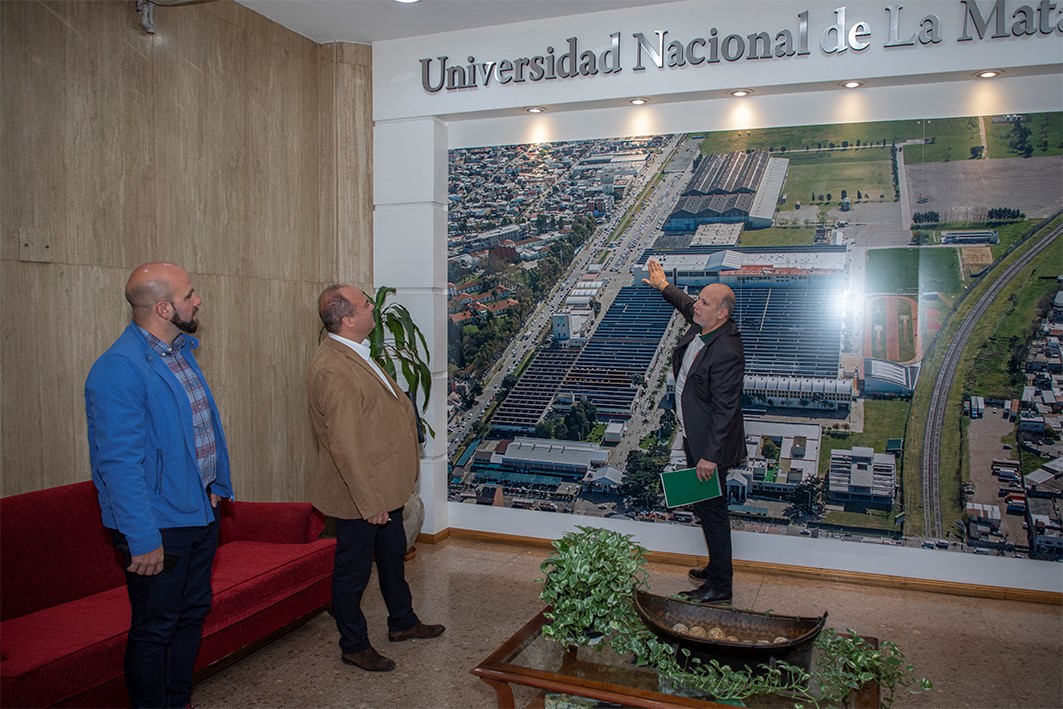 ARGENTINA— The FISU Healthy Campus Programme has taken off since its launch in May 2020, with 45 universities from 32 countries joining and already reaching certification level. So far impacting over one million university students worldwide, the programme is aimed at health and well-being on university campuses, in which the University of La Matanza in Argentina is the most recent to join this elite group of universities.
ARGENTINA— The FISU Healthy Campus Programme has taken off since its launch in May 2020, with 45 universities from 32 countries joining and already reaching certification level. So far impacting over one million university students worldwide, the programme is aimed at health and well-being on university campuses, in which the University of La Matanza in Argentina is the most recent to join this elite group of universities.
University Rector Dr. Daniel Eduardo Martinez is the driving force behind this initiative for the University of La Matanza, who sat down with our friends at FeDUA Argentina to talk about the lengths they have gone to ensure healthy living and well-being on campus for university students.
In your opinion how can the FISU Healthy Campus Programme help improve and consolidate the excellent performance of your university? How does this programme help the university improve the quality of life on campus?
We were proud from the first moment to be one of the seven universities selected internationally to contribute in the development phase of this project. In our case, the university always had a clear vision of the healthy lifestyle that it wanted to enact. Each dependency from its space contributed positively to the lifestyle and the generation of healthy habits.
Thanks to this project we created a specific work team for this purpose, with members of the entire university community, exchanging ideas, opinions and projects—facilitating the coordination of actions for the subject.
The University of La Matanza is one of the first that joined the FISU Healthy Campus programme and is already at the level of a certification. How do you explain this success? How did the university organise itself and is it preparing for the future management of this programme?
Like all projects that are carried out at our institution, there is a high level of commitment and participation from the entire university community.
Authorities, teachers, non-teachers and students have been working together on the idea of the FISU’s visit to our facilities. Success is reflected in working together and collaboratively. Although we are already FISU Healthy Campus certified, we will continue with the accreditation to obtain the highest mention in the platinum category.
The FISU Healthy Campus programme includes some criteria that guides universities to cooperate and work with the local stakeholders and people outside of the university. As your activities are a success and good practice, what can you suggest to universities all around the world that have not yet started to work actively on this kind of programme?
In the criteria evaluation stage carried out among the pilot universities, our House of Studies proposed that the ‘link between the institutions with the community’ be one of the criteria to be evaluated. In our experience, the possibility of connecting with the environment constitutes one of our pillars and constantly enriches us.
We are linked through multiple initiatives such as ‘The University and You’, the UNLaM Marathon and classes for older adults. We demonstrate with examples, so my suggestion is that they (other universities) should not hesitate to contact external actors since for many it is the first approach they have with the university.
The University of La Matanza is known for its excellent results at national and international university competitions, but it also has a sport programme for everyone. How do you combine these two aspects?
From our beginnings, it was clear that we wanted to be ‘the university for the community’. In these 30 years, we have worked towards this aspect, where we recognise that perhaps we have many elite students and athletes who want to dedicate their lives to sports or competitions, while many other people only want to incorporate sports as a social activity. Both choices are respected and highly encouraged in our sports offer.
Many children start at the age of six (6) practicing a sport in our facilities, and then grow up and begin a university career, in many cases being the first university students in their families.
Over the years, we have realised that sport helps us improve academic performance because it forms the group spirit, so we will continue to combine these aspects institutionally and support an open-door university, promoting sports activity throughout the university community and its environment.
Also from the University of La Matanza, General Coordinator of Sports, Mr. Adrian Verdini also spoke about the programme and the importance of collaborating with other sectors within the university itself.
“The evaluation of the work with the other sectors of the university is more than positive. Thanks to the commitment and involvement of our rector with this project, all the authorities of the institution are part of this process that enabled us to obtain the certificate as a healthy university from the FISU,” Mr. Verdini explained.
Mr. Verdini also spoke about the ‘La Universiaded y Vos’ project by the University of La Matanza—contributing project to the FISU Healthy Campus certification.
“The idea of the project is to work together with schools, neighborhood clubs, and retirement centers with the aim of continuing to share the university’s activities with them. Through this program we seek that in the future, these children are future students, future professionals and that everything they learned at their university and municipality is returned,” he said.
Already a very active National University Sports Federation (NUSF) in the realm of university sports, FeDUA Argentina continues to grow their presence within the University Sport Movement as explained by FeDUA President and FISU Executive Committee Member, Emiliano Ojea.
“We are very proud that one of our affiliated institutions such as UNLaM is one of the pilot cases of the program, as well as the possibility of having had a member of our team contributing in the process of building the criteria of the program together with experts from all the world,” he mentioned.
“Now our challenge is to take advantage of this successful case and replicate it with the rest of the country’s universities to add them to the project. In this sense, the first step was to organise a webinar with the FISU Director of Healthy Campus and Universities Relations and representatives of more than 30 universities throughout the country.”
Although obtaining a FISU Healthy Campus certification is of high importance to the University of La Matanza, the well-being and health of the community at large is an absolute priority to the university. Allowing these programmes to be accessible for people of all abilities, ages and professions, they have a bright future ahead and have successfully found the connection between the University Sport Movement and a better future for all.